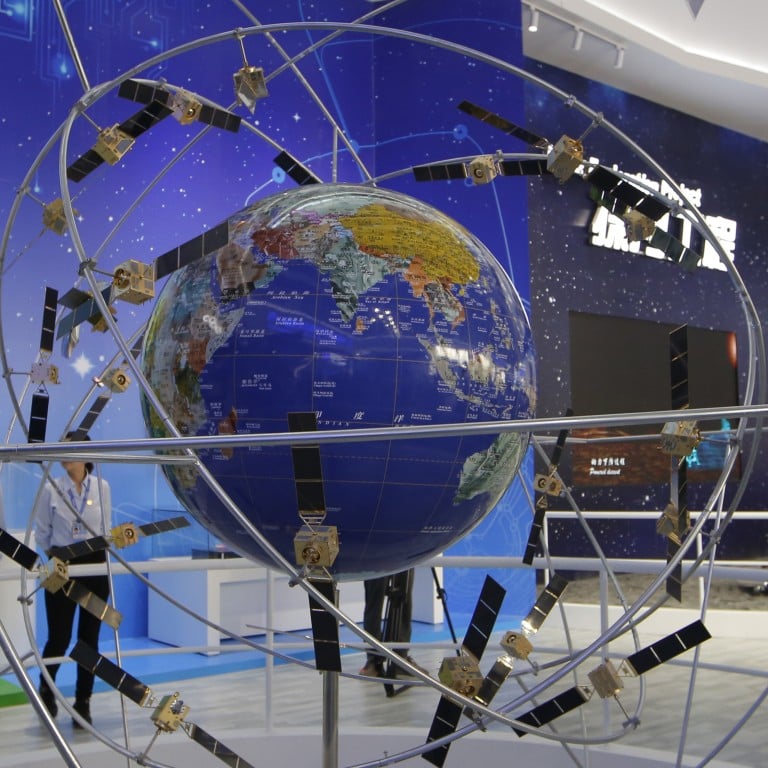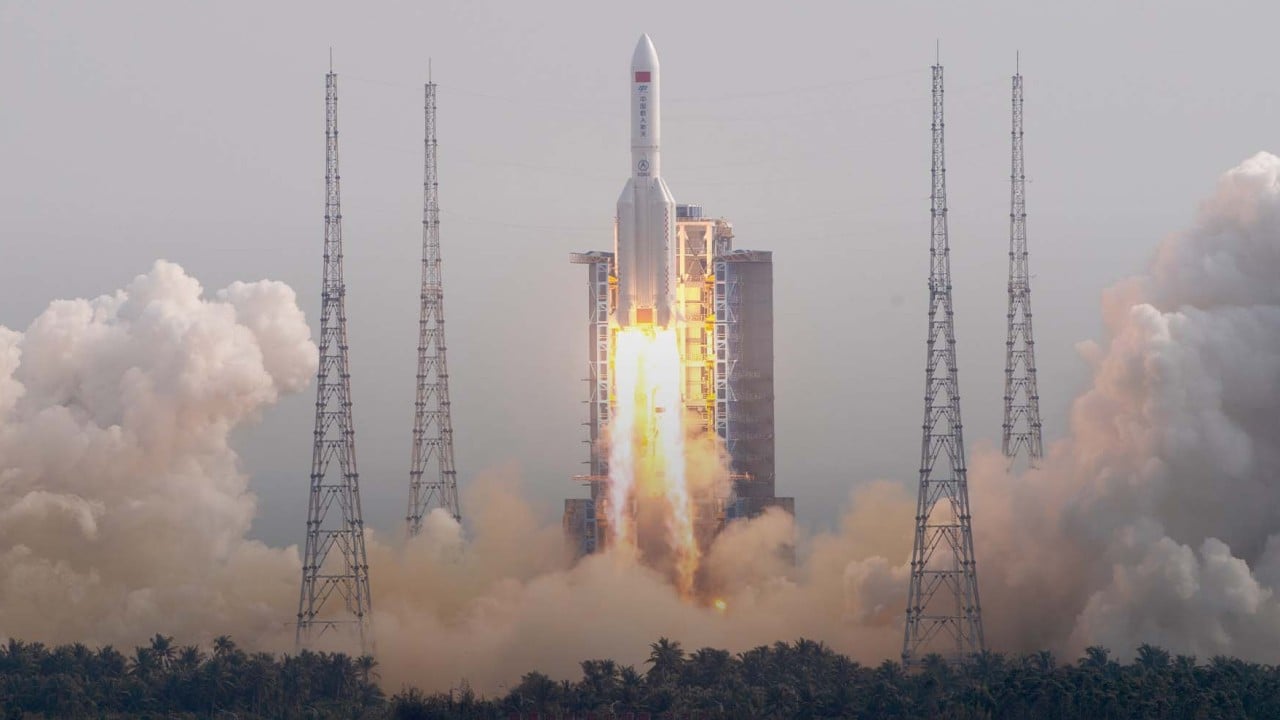
China’s Beidou satellite navigation system gets a stronger foothold in the West
- China’s answer to GPS is now more powerful than ever, thanks to 2 ground stations in North America
- As Beidou satellite system grows, so do government worries the technology could be used as a spy tool
Far above our planet, China’s growing constellation of navigation satellites is offering more precision than ever, thanks to some down-to-earth support in North America.
The ground facilities are intended to track the Chinese satellites when they fly over the region and report their flight status to Beijing. The data is used to help increase the accuracy of the positioning service with a margin of error of 3cm, according to information from the China North Industries Group Corporation Limited (NORINCO).
GPS has 11 command and control antennas and 16 monitoring sites around the world, according to the US government. There are no GPS ground stations located in China.
Such satellites are equipped with sensitive devices that can, over time, accumulate errors due to changes in gravity and other disturbances as they orbit Earth. The ground stations can help correct these errors, according to a NORINCO representative at the China International Aviation and Aerospace Exhibition in Zhuhai, Guangdong province, who asked not be named.
There are now 120 Beidou ground stations around the globe. A few US allies, including Canada, Australia and Japan, host some of the facilities.
“The observation stations have covered the operational orbits of all Beidou satellites,” said the representative on Wednesday.
“An observation station does not undertake the role of data transfer [to or from the satellites], and only provides data for calibrating the calculation model.”
Unlike GPS, which only broadcasts signals to users, Beidou satellites are equipped with a communication device that can receive data from a transmission chip inside mobile devices.
In September, Chinese tech giant Huawei Technologies Co launched the Mate 50 smartphone, a device that uses the Beidou system to offer greater signal range in remote areas. Registered users can send free messages to high-altitude Beidou satellites that orbit more than 30,000km above Earth.
According to NORINCO, the Beidou data centre can handle 18 million messages per hour, with each message containing about 1,000 Chinese characters for non-military users. The service is currently limited to Chinese consumers, but some governments have expressed concerns that the technology could be used as a spy tool.
China’s next-gen BeiDou satellites reach for the moon – and your mobile
Beidou’s data transmission capabilities are “a huge threat to us all,” Jeremy Fleming, the chief of Government Communications Headquarters, a British cyber spy agency, said last month.
“We think that is a problem because it is on the one hand providing very accurate services akin to GPS and the convenience that comes from that, but on the other side its capabilities, its data, are openly available to the Chinese state,” Fleming said in speech in London on Oct 11, according to the BBC.
“Our proposition with Beidou and a range of other technologies is that the data is being used to control and surveil, and not just support prosperity. It is now present in over 120 countries around the world,” he added.
One of the users of the Beidou system is the US military.
According to the Chinese government, most areas of the planet have access to no fewer than 16 Beidou satellites at any given time.
While travelling, an ordinary user can obtain real-time positioning with accuracy of between two to five metres using Beidou, similar to the service provided by GPS.
The more satellites visible in the sky, the faster and more reliable the positioning and timing services become.
At first, building out the Beidou ground station network got off to a slow start, with only a few neighbouring countries such as Thailand agreeing to cooperate, according to available information.
But in 2020, a European space company ended Beidou’s access to a satellite tracking station in Australia, under political pressure from the US, according to Reuters.
China still operates at least two Beidou stations in northern and southern Australia, according to NORINCO.
China’s BeiDou system ‘more visible from space than US rival GPS’
China has also deployed space-based monitoring technology that uses other Chinese satellites to track Beidou satellites and correct their errors. The technology would allow the Beidou system to maintain good performance with fewer or no ground stations, according to researchers involved in the project.
China also plans to launch Beidou satellites with more advanced technology that will expand service coverage to the moon, inside buildings and even in the oceans.




